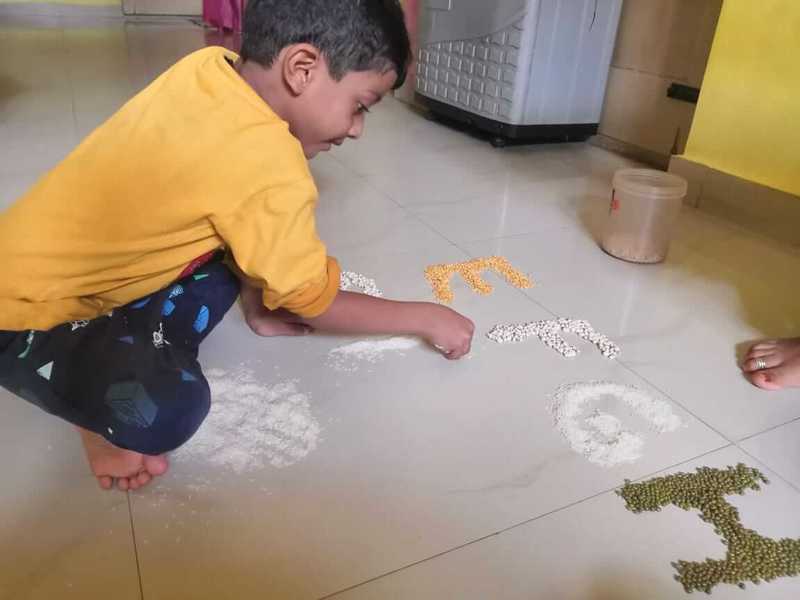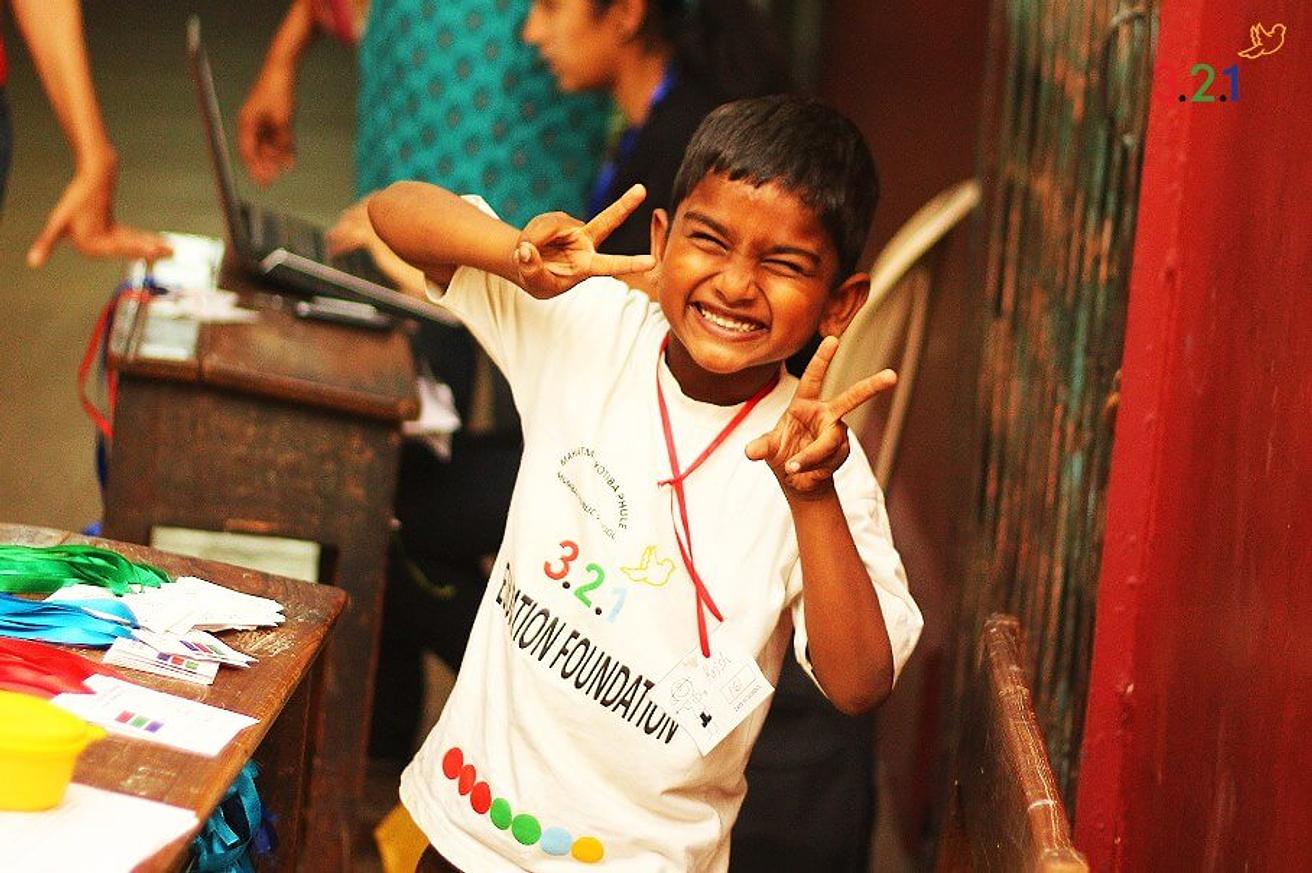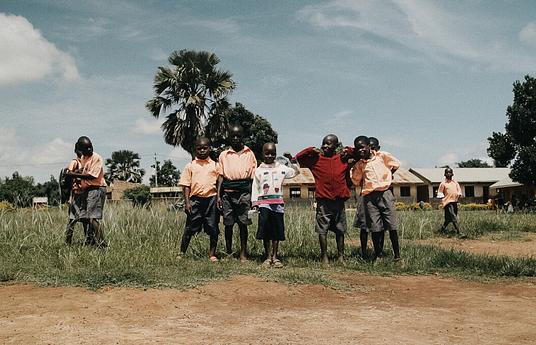When teachers are provided with the right tools, they can create magic in online learning environments.
COVID related school closures have put an additional hurdle in the learning of children, especially those from marginalized backgrounds. We spoke to our stakeholders across 3 cities in India to better understand the challenges they were facing.
We found that one of the biggest challenges teachers were facing was the struggle to engage children digitally. They were spending hours trying to find resources and putting down plans that would work even with the device and data constraints that exist in most households. Their own unfamiliarity with technology further exacerbated their troubles, with most teachers struggling to even make simple PDFs or PPTs to share content with their students. This, coupled with the increase in household work due to the lockdowns, has meant that teachers have less time to engage with and support their students. “We have to cook and take care of the house and children. There is not a lot of time to plan.” said a teacher from Hyderabad.

At the 321 Foundation, we believe giving teachers access to high-quality, easily sharable lessons will increase the usage of online learning tools and student engagement. With this thought in mind, our first step was to speak to as many stakeholders as we could to understand if the solutions we proposed would work in their context. Spurred by the immediacy of the problem, we spoke to over 20 stakeholders in 2 days to collect inputs and further refine our understanding of the problem and our solution.
Creating CAPE
Based on these insights, we created a solution to help teachers solve the problem of curating quality resources to share with students and called it CAPE. CAPE is a free online lesson bank where educators can find complete lessons that can be easily sent on WhatsApp. These lessons are aligned to national and state boards (CBSE/ Maharashtra/ Telangana/ Karnataka state board curriculums) and there is no sign-up or login required.
We knew that in order to get teachers to adopt this new tool, we had to keep their existing habits in mind and make it as easy to use as possible. Therefore we needed to tap into the existing communication channels between teachers and students, to make sure our solution fit into these channels. CAPE’s lessons can be sent directly over WhatsApp, which is our stakeholders the primary mode of online communication. Teachers also have the flexibility to choose between picture based lessons and video-based lessons, which enables them to take calls based on the data & device constraints of their students.
We began piloting the offering with our existing partners at the end of June to ensure it works for them. We got their feedback on how to improve the product and make it easier to use at scale. Post that, we released an updated version of the platform for public use. Through extensive social media campaigns, we have been able to reach out to users from across the country. One school leader from Bihar remarked,
“We have been looking for a solution like this. The fact that it is on WhatsApp will make this very easy to use for our students.”
Teachers create magic
By providing teachers with ready-to-use lesson plans, we were able to dramatically reduce the time they had to spend on creating lessons. This opened up time for them to work more closely with students and support them. Teachers have been able to employ innovative solutions to increase parent and student engagement.
“We held a digital PTM with our school leader, class teacher, and parents on Zoom. We told them about COVID, the importance of learning, and their role in it. For those who couldn’t join, we called each of them separately to explain. We highlighted the benefits for them - that children will learn and be engaged, and shared how we will support them.” says one school from Mumbai. “We saw a jump from 10 responses out of 46 to 38 responses,” they added.
CAPE also allows teachers to customize plans and resources so they can add a personal touch. This has helped with student response rates. A teacher in Hyderabad says,
“Students are eager to do the activities. We use ‘golden tickets’ to show appreciation and increase motivation. Many more are responding now. Two more students have joined. They are asking about when they will receive golden tickets.”
Challenges with online learning
While CAPE has made life easier for teachers and enabled them to reach out to more students, the overall response rate remains low. Constraints and concerns from parents have been the main reason for this.
Parents are wary of engaging with online material as they fear schools will charge them for these programs. Given the loss of livelihood due to the lockdowns across the country, many are financially unable to pay school fees. They have also migrated back to their hometowns and villages, where connectivity is low. In households where parents are working, students may not have access to devices for the whole day, as parents take phones with them to work.
Schools face their own set of challenges. Since parents are unable to pay tuition fees, school leaders are struggling to pay their teachers and other staff. This has impacted teacher motivation and has caused high levels of attrition. Schools are therefore understaffed and struggling to cater to all students.
The way forward
There is still a long way to go on the path of cracking digital learning in India, but we have made progress with CAPE. There have been many things we got right, and many learnings. We’re still innovating and improving the offering to be able to reach more and more stakeholders each day.
The world has changed drastically over the last few months, in order to provide a safe learning environment for the next generation of learners we need to completely rethink education. At 321, we hope to be the innovators at the heart of the solution.





